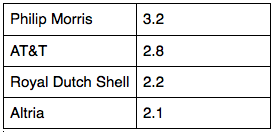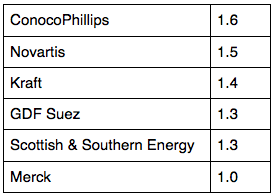Where’s your money invested? TELL ME. NOW. No checking resource materials.
Here’s another difference between those with the propensity for wealth and those without. A rich person can give a semi-detailed answer to the above question immediately. A person who’s treading water can’t.
If you have a regular job, and you don’t have a 401(k), insist on opening one the next time you’re in the office. Also, ask if your employer matches your contributions. [This post isn’t about the vagaries of the 401(k); we’ll write about that soon enough. But just know for now that you can contribute 15% of your income to retirement savings, which will immediately reduce your taxable income by 15% and possibly put you in a lower bracket. Plenty of employers also “match” employee contributions up to a certain limit, which makes it free money if you want it. You like money, right?]
The “legacy” rich people have real estate and collectible art. For most of the rest of us, building through a 401(k) will have to suffice. So assuming you have a 401(k), where do the actual monthly contributions go?
Probably in a mutual fund. But which one, and are you happy with the results? Do you even know what the results are? Do you even bother opening the monthly statement to see which components rose and which fell? While it’s crazily obsessive to check stock prices every day, it’s even crazier to check them once every 40 years.
There’s a fair chance that your 401(k) is a part of the Capital Income Builder Fund from American Funds. We picked the Capital Income Builder Fund pseudorandomly; it’s one of America’s 10 biggest mutual funds. Let’s assume your 401(k) is indeed in this particular fund. You might want to know that this fund consists of:
25% The PMI Group (a mortgage insurer)
25% Horizon Lines (shipping containers)
25% AbitibiBowater (pulp and paper)
25% Allied Irish Banks (one of Ireland’s 4 biggest commercial banks.)
Isn’t that nice and diversified? Those industries are all over the map, right?
Alright, that was a lie. We just selected the 4 companies that have lost the most value on the New York Stock Exchange over the past half year (87, 83, 75 and 75%, respectively.)* But if you asked the average 401(k)holder if she holds any of those companies in her mutual fund, she probably couldn’t answer definitively.
Here are the actual components of the Capital Income Builder Fund. But before we get started, how big do you think its biggest component is? Stop here, just take a guess. We won’t screw with you again, honest. Just make an educated estimate as to what percentage of the fund is made up by its biggest component.

(That’s 2 tobacco manufacturers in the top 4. Death paradoxically remains a growth industry.)
GDF stands for “French Gas”, in French. It’s the world’s largest utility, selling mostly natural gas and electricity, although you’d never figure that out from a visit to their website loaded with buzzwords. “Southern” in “Scottish & Southern” refers to southern England: the company was created by a merger.
This is nothing unusual: mutual funds like the one your 401(k) is invested in really are that diverse. But we’re ten components in, and 91.1-92.1% of the fund’s value is still unaccounted for. So what companies is the lion’s share of the Capital Income Builder Fund invested in?
Beats us.
American Funds’ own site doesn’t give us any specifics, only vague generalizations about market sectors and types of component.
If you’re one of the millions who are invested in this fund, you should be outraged that your fund manager keeps your investment such a secret. It’s not quite a secret – you can doubtless contact the investor relations department for a full breakdown – but you shouldn’t have to. Furthermore, what incentive does American Funds have to attract new investors when they won’t let potential buyers see the merchandise? (Or even know what it is?)
Things to take away from today’s post:
- Your 401(k) is in more pies than you think.
- You probably don’t know what those pies are.
- Even with a little research, you’ll still only be able to identify a handful of the pies.
401(k)s themselves are a good idea for those eligible for them. The tax savings alone make them worthwhile, to say nothing of the employer matching. But if you’re relying on your employer’s mutual fund company representative to make financial decisions for you that could end up impacting you for decades, you need to take ownership.
*This isn’t necessarily bad news. The chances of picking the 4 worst-performing stocks on the NYSE are infinitesimally low – several quadrillion to one. But even if you did, with a balanced portfolio you’d only lose about 80% of your money. That’s not easy to do. We invite you to check those companies’ financials (easy to do, with the help of our e-book) and see if they aren’t among the best bargains on the board.
**This article is featured in the Yakezie Carnival: The Wonderful Wizard of Oz Edition**






